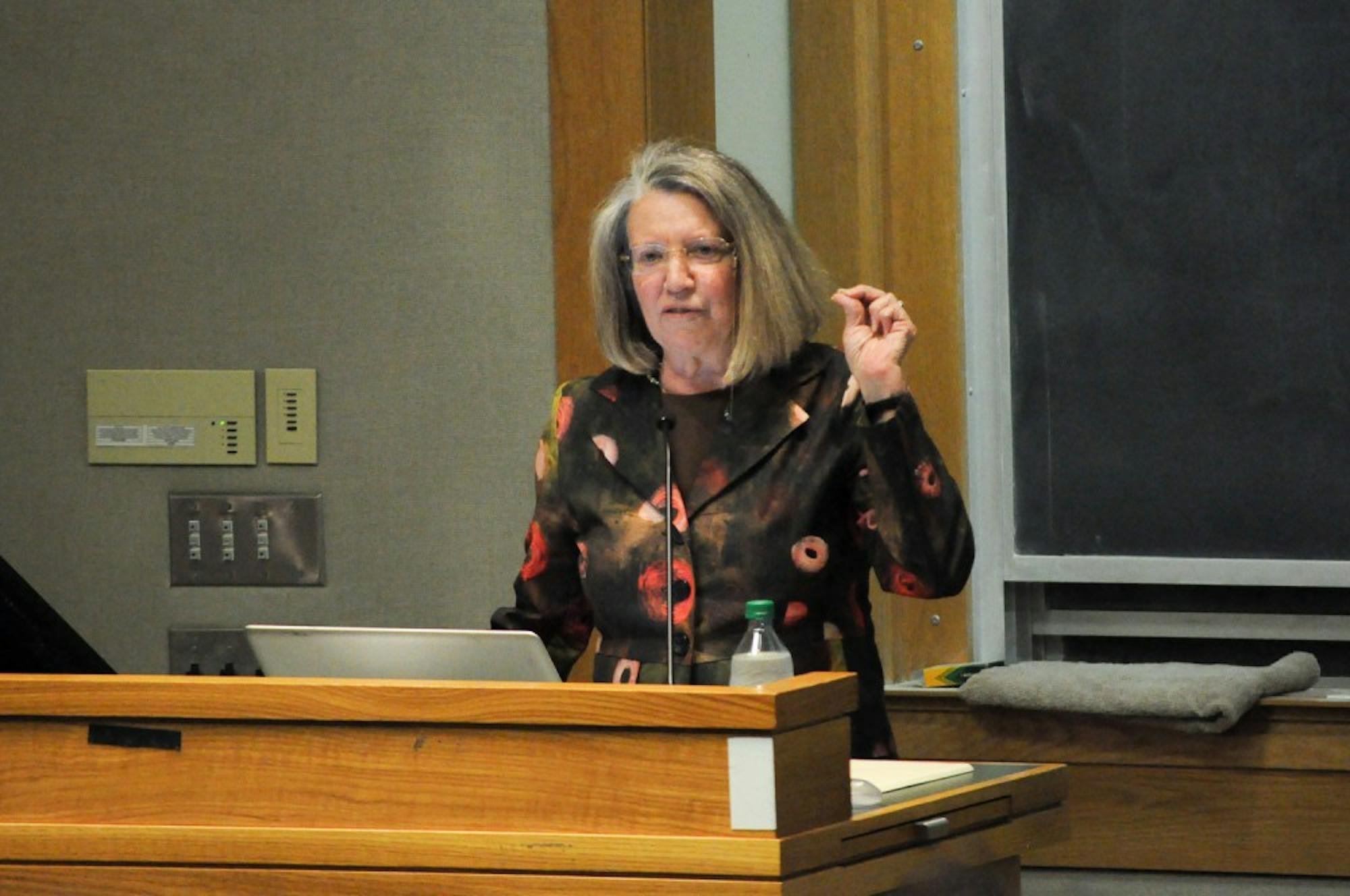The current role of the humanities in academia, both in the U.S. and around the globe, is in flux. Scholars gathered at Dartmouth this weekend for a summit that tackled challenges currently facing humanities departments and scholars.
Like many institutions nationwide, Dartmouth has seen a steady decline in interest in the humanities over the past decade. The percentage of humanities majors dropped from 24 percent in 2004 to 17 percent last year. In 2010, around 7 percent of American college graduates majored in the humanities, the Wall Street Journal reported.
The summit was organized following recent reports that describe majors’ declining popularity yet increased demand for humanities-related skills. English professor Donald Pease, who organized the conference, said the summit aimed to clarify the two reports, which were issued by Harvard University and the American Academy of Arts and Sciences last year.
The 2013 Harvard report, titled “Mapping the Future,” outlined the declining trend in humanities majors at Harvard and asserted the humanities’ value in a liberal arts education, recommending interventions to increase enrollment.
The American Academy of the Arts and Sciences’ 2013 report also defended the field, stressing its importance in developing empathy among individuals and the relevance of this empathy to U.S. security and multicultural interaction.
The faculty committee responsible for organizing the conference will compile a paper contextualizing the two reports with material presented during the summit by the end of the summer, Pease wrote in an email.
“Dartmouth can be the place where that change in conversation can transpire,” Pease said.
During the summit, speakers responded to many of the challenges raised in these reports.
Robert Oden, chair of the Dartmouth-Hitchcock Medical Center Board of Trustees and former president of both Carleton and Kenyon Colleges, spoke about the importance of the humanities both in his own life and more broadly. The goal of a liberal arts education, especially the humanities, is to think seriously about what makes life worthwhile, Oden said.
Oden formerly taught religion at the College.
Pheng Cheah, a rhetoric professor at the University of California at Berkeley, argued that traditional defenses of the humanities are ineffective at improving student enrollment. Interest in the humanities, Cheah said, will only grow if the focus shifts toward helping individuals become more effective workers.
Friday’s events ended with a discussion between the two scholars, moderated by Pease, about their differing but not always conflicting viewpoints.
Cheah’s speech critiqued the classic defense of the humanities offered by Oden.
“When that contrast was established, you then had a really good set of pros and cons,” Pease said. “That is, you had a strong sense of what was at stake in the question.”
The summit continued Saturday morning with a roundtable discussion, at which Duke University literature professor Walter Mignolo spoke about including indigenous understandings in discussion of the humanities to broaden the frame beyond Western views.
Meaghan Morris, a gender and cultural studies professor at the University of Sydney, discussed the relationship between critical reasoning, a skill often emphasized in humanities disciplines, and instrumental reason, which is more valued in the job market. The two, she said, are not necessarily opposed.
The roundtable also included Dartmouth professors Lawrence Kritzman, of the French and comparative literature departments, and Ivy Schweitzer, who teaches in the English and women’s and gender studies departments. English professor Colleen Glenney Boggs, who directs the Leslie Center for the Humanities, moderated the discussion.
In an afternoon speech, The New School political and social science professor Nancy Fraser argued for a “bifocal vision” of the humanities. People should not value the subjects on solely their intrinsic or extrinsic value and should instead place a greater emphasis on tying humanities to social sciences, Fraser said.
Art history professor Mary Coffey and German and comparative literature professor Klaus Mladek, who attended the conference, said they appreciated the multiple viewpoints presented during the summit.
Coffey said listening to speakers who held different perspectives helped her consider own stance on the subject.
“We did both the fundamental rethinking of terms of the humanities,” Mladek said, “and then also very practical questions.”




